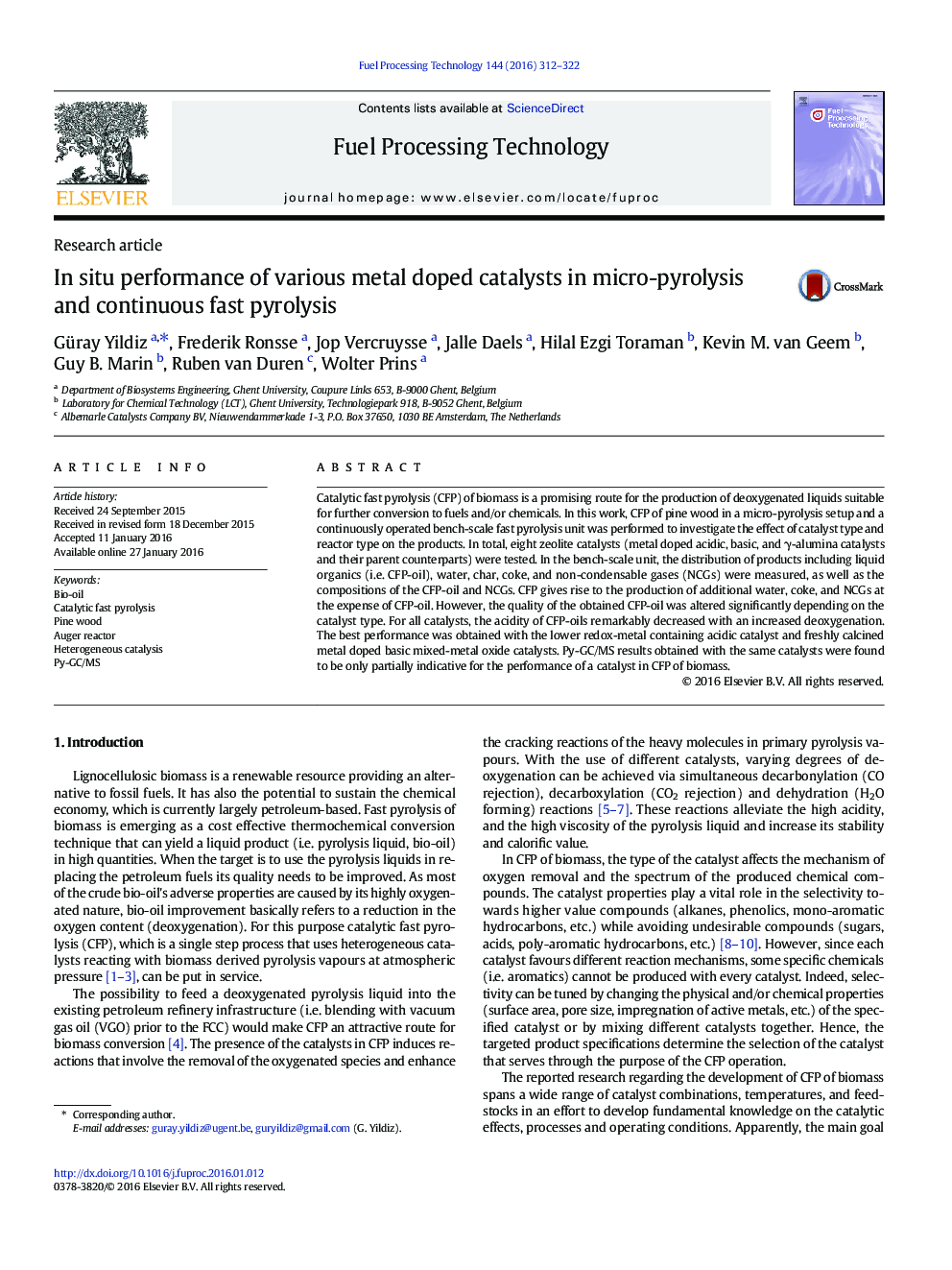| Article ID | Journal | Published Year | Pages | File Type |
|---|---|---|---|---|
| 209288 | Fuel Processing Technology | 2016 | 11 Pages |
•Pine wood was pyrolyzed catalytically at 500 °C in an auger reactor.•The effect of catalyst type on the pyrolysis products was investigated.•The presence of catalysts led to the production of additional water, coke, and gases.•For all catalysts, the acidity of oils decreased with an increased deoxygenation.•The py-GC/MS results were found to be only partially indicative for CFP.
Catalytic fast pyrolysis (CFP) of biomass is a promising route for the production of deoxygenated liquids suitable for further conversion to fuels and/or chemicals. In this work, CFP of pine wood in a micro-pyrolysis setup and a continuously operated bench-scale fast pyrolysis unit was performed to investigate the effect of catalyst type and reactor type on the products. In total, eight zeolite catalysts (metal doped acidic, basic, and γ-alumina catalysts and their parent counterparts) were tested. In the bench-scale unit, the distribution of products including liquid organics (i.e. CFP-oil), water, char, coke, and non-condensable gases (NCGs) were measured, as well as the compositions of the CFP-oil and NCGs. CFP gives rise to the production of additional water, coke, and NCGs at the expense of CFP-oil. However, the quality of the obtained CFP-oil was altered significantly depending on the catalyst type. For all catalysts, the acidity of CFP-oils remarkably decreased with an increased deoxygenation. The best performance was obtained with the lower redox-metal containing acidic catalyst and freshly calcined metal doped basic mixed-metal oxide catalysts. Py-GC/MS results obtained with the same catalysts were found to be only partially indicative for the performance of a catalyst in CFP of biomass.
